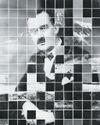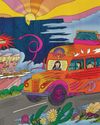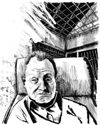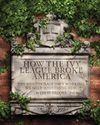
Shortly after the Italian crime journalist Roberto Saviano arrived in New York last fall, he came into possession of an unusual map. Unlike your typical tourist map, this one had been specially made for him by Italian authorities, and marked places he was to avoid—many of them shops and restaurants run by Italian immigrants suspected of connections to the mob.
The forbidden locations proved irresistible. One afternoon, he donned what he calls his “hipster” disguise (glasses, hat, caterpillar mustache) and slipped into a restaurant indicated on the map, where he ordered and waited to see what would happen.
His food came. He ate it. No one noticed him at all.
Back home, Saviano can’t walk down the street without causing a stir. His 2006 exposé of the Neapolitan mob, Gomorrah, has sold more than 10 million copies in some 50 languages; a 2008 film version was nominated for a Golden Globe, and a TV spin-of series was the most-watched show in Italy last year. Saviano grew up in a mob-infested town near Naples (he saw his first dead body lying in the street when he was 13), and his indictment was personal and unrelenting. Gomorrah recounted the horrors of the Camorra (as the Neapolitan mob is known) in a way that demolished the reigning mafia myth: in place of cannoli and codes of honor, he offered child soldiers and bodies being dissolved in hydrochloric acid. In so doing, he forced many Italians to reckon anew with the gruesome reality of the mob.
Bu hikaye The Atlantic dergisinin July - August 2015 sayısından alınmıştır.
Start your 7-day Magzter GOLD free trial to access thousands of curated premium stories, and 9,000+ magazines and newspapers.
Already a subscriber ? Giriş Yap
Bu hikaye The Atlantic dergisinin July - August 2015 sayısından alınmıştır.
Start your 7-day Magzter GOLD free trial to access thousands of curated premium stories, and 9,000+ magazines and newspapers.
Already a subscriber? Giriş Yap

The Dark Origins of Impressionism
How the violence and deprivation of war inspired light-filled masterpieces

The Magic Mountain Saved My Life
When I was young and adrift, Thomas Manns novel gave me a sense of purpose. Today, its vision is startlingly relevant.

The Weirdest Hit in History
How Handel's Messiah became Western music's first classic

Culture Critics
Nick Cave Wants to Be Good \"I was just a nasty little guy.\"

ONE FOR THE ROAD
What I ate growing up with the Grateful Dead

Teaching Lucy
She was a superstar of American education. Then she was blamed for the country's literacy crisis. Can Lucy Calkins reclaim her good name?

A BOXER ON DEATH ROW
Iwao Hakamada spent an unprecedented five decades awaiting execution. Each day he woke up unsure whether it would be his last.

HOW THE IVY LEAGUE BROKE AMERICA
THE MERITOCRACY ISN'T WORKING. WE NEED SOMETHING NEW.

Against Type
How Jimmy O Yang became a main character

DISPATCHES
HOW TO BUILD A PALESTINIAN STATE There's still a way.